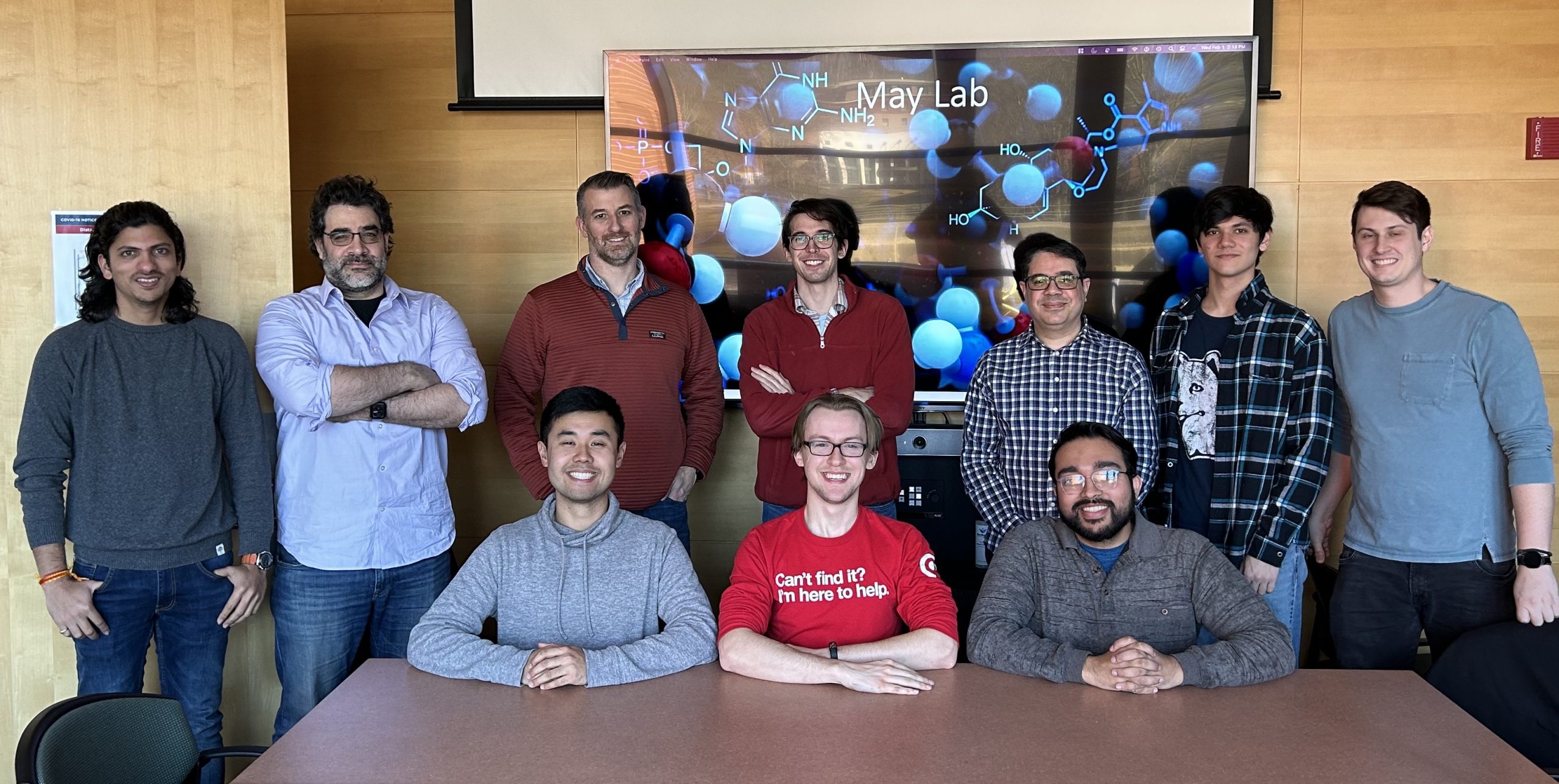
Research in the May group is focused on using computational methods to further our understanding of biological systems. From these studies we aim to uncover mechanisms and biophysical principals to govern molecular structure and interactions.
If you are interested in this line of research please consider joining us. We will consider individuals at any career stage. The main requirements are being motivated to do research, eager to learn, and passionate about science.
News
- Rey Carten has received a summer fellowship (SURF) award to work in the May Lab for the 2023 summer. His project is focused on using MD simulations to aid in the design of Janus-based nanoparticles.Posted on March 30, 2023
- Milan Patel has received a summer fellowship (SURF) award to work in the May Lab for the 2022 summer. His project is focused on optimizing NMR NOE restraints in MD simulationsPosted on April 30, 2022
- Kate Lee has been selected for the University Scholar Program, this is the highest undergraduate distinction at UConn. Congrats Kate, keep up the great work!Posted on December 23, 2020
- Congratulations to Dr. Searle (IC) Duay on successfully defending his Ph.D. Thesis on “Influence of Local pH Environment and Zn(II) on the Structure of the Antimicrobial Peptide Clavanin A and its Dynamics with Different Membrane Models in MD Simulations”. Best wishes to Dr. Duay for starting a faculty position at Adamson University in the Philippines.Posted on July 27, 2020
- IC Duay presents a talk at the first Molecular Biophysics in the Northeast Meeting, held at Northeastern University. Great job IC!Posted on November 9, 2019